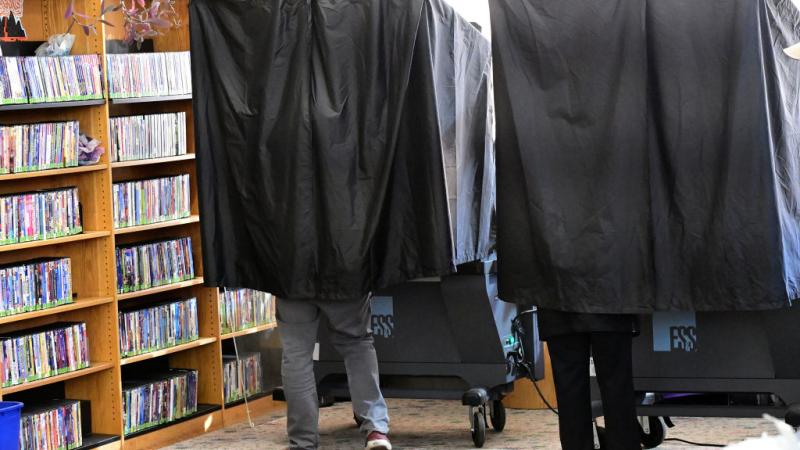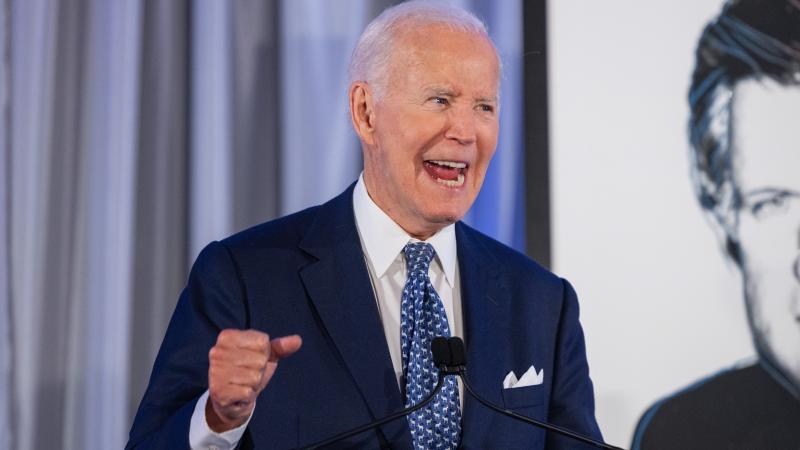Amid flooding, Canadians fined $5,000 to reenter their own country
Flooding on both sides of the U.S.-Canadian border, combined with strict COVID-19 testing requirements, led to some British Columbian travelers being temporarily stranded in Washington.
Flooding on both sides of the American-Canadian border, combined with strict COVID-19 testing requirements, led to some British Columbian travelers being temporarily stranded in Washington.
At least one fully-vaccinated traveler, Len McCormick, was told that he could not return to Canada without a specific and expensive COVID-19 test, unless he was willing to pay a $5,000 fine.
What started out as a simple trip from Canada to the U.S. on Nov. 13 for his grandson’s baptism in Bellingham, some 23 miles south of the border, turned into an odyssey.
McCormick confessed to being “very ambivalent about going,” in notes provided to The Center Square. It was only the week before, on Nov. 8, that the U.S. reopened its land border with its neighbor to the north to nonessential travel after almost 20 months of COVID-19 restrictions. There still were significant COVID-19-related restrictions on both sides of the border, and Canadians had to undergo testing to get back into Canada.
McCormick’s journey started with an early afternoon crossing into the U.S. and a stop at a drug store in Sumas, Washington, a city located on the border, to schedule a necessary PCR test for COVID-19, before checking into a Sumas hotel.
When McCormick attended the baptism Nov. 14, significant rain was coming down. When he returned to his hotel that afternoon, it had sandbags at the door and was eventually evacuated.
Finding a room at another hotel wasn’t easy.
“Because of people stranded by the storm, they were booked solid,” McCormick explained in his notes. “No room for me.”
With some help from staff at his Sumas hotel, McCormick managed to book a room in next-border-town-over Lynden, at double the price. According to his notes, he undertook a treacherous drive through roads that had water over the roadway in three places to get there.
The next morning, after a night of little sleep and a lot more rain, McCormick found out his PCR test at the Sumas drug store had been cancelled because of flooding. McCormick then scrambled to get the needed test that would allow him to return to his Canadian home.
McCormick drove to a testing site near the airport in Bellingham. He had been advised that a cancellation or no-show at a testing facility there offered the best opportunity to take the test. However, that opportunity washed away as well.
“While waiting in line at the testing facility, it was closed down because they have no way to transport the tests through the flood,” McCormick wrote.
After several more attempts to find instant testing, driving through flooding streets, and struggling with spotty communication because of ongoing cell phone and Internet outages, McCormick was frustrated. He decided to try his luck crossing back into Canada, with a plan of sorts.
“Therefore, decided to drive straight to the Canadian border and see if I could be admitted and quarantined just as if my PCR test had been positive,” he wrote.
That, too, did not go as planned, owing to the requirement that anyone entering Canada be fully vaccinated and show proof of a negative PCR test taken no more than 72 hours before their arrival at the border crossing.
“Because I am a Canadian citizen, they cannot deny me re-entry,” McCormick wrote. “However, without a PCR test, I would be fined an amount in excess of $5,000. I believe – but am not sure – the number was $5,800.”
According to Canadian law, if a citizen does not provide proof of a valid test result, they will be allowed entry, but may be subject to a fine of up to $5,000 Canadian plus additional surcharges, or face criminal prosecution.
Authorities turned him back Nov. 15, with the waters rising, with a list of possible testing sites. McCormick noted he already had tried most of the sites, and they turned out not to be open.
This presented McCormick more frustration and a looming medical problem.
“Need to find out how long it is going to take,” he wrote. “My medications run out by Friday (Nov. 19). So must be home by Friday evening.”
With much additional digging, McCormick finally located a site that administered the right test to get him back into Canada and was not flooded, at the cost of $240. The Canadian government was not helpful in this search.
“Note: Not on [Canada Border Services Agency] list,” he wrote.
McCormick took the test on the afternoon of Nov. 16 and was admitted back into Canada that night.
There have been some announcements on social media and traditional media that the government is relaxing the sort of restrictions that snared him up.
“Given the situation in BC, travellers and essential workers who must travel to or through the USA for essential reasons (food, fuel, supply chains) are exempt from testing and quarantine requirements. These exemptions do not apply to non-essential travel,” the Canadian Border Service Agency tweeted on Sunday.
The problem does not appear to be entirely cleared up.
Heeding the government’s words, Marlane Jones, a South Surrey senior, crossed the border last weekend to buy gasoline and get it to people who need it. She estimated that she was in the U.S. for about 10 minutes, reported the Surrey Now-Leader.
When Jones tried to re-enter Canada without a negative PCR test, she mentioned the rationale that the government had indicated to border agents. They fined her $5,7000.
“They said to me, ‘Nope, we haven’t been told that,’ ” Jones told Surrey Now. “One of them said I was the ninth person this morning that was fined. And that was before 8 a.m.”
People on both sides of the border are urging the Canadian government to eliminate requirements that fully vaccinated Canadians produce a negative PCR test when returning from the U.S. at land border crossings.
“We’ve been pressing the government to eliminate the PCR test for fully vaccinated people altogether,” said Perrin Beatty, president of the Canadian Chamber of Commerce. “It looks like they are about to announce that they will drop it for Canadians who are away for less than 72 hours but keep it for everyone else, which is only a partial solution. We need to have the same rules for travelers whether they are going south or north and whatever mode of transportation they are using. Anything less simply perpetuates a costly unfairness.”
Anita Huberman, president of the Surrey Board of Trade, echoed those comments.
“We have been advocating to the federal government to remove this not only for short-term trips but also long-term trips,” she said.
The message from business was the same on the American side of the border.
“The ‘same rules for both directions’ is the only thing that truly makes sense,” said Guy Occhiogrosso, president of the Bellingham Regional Chamber of Commerce.
Beatty said of McCormick’s ordeal, “The initial response he had from the government was clearly unfair and nonsensical.”













